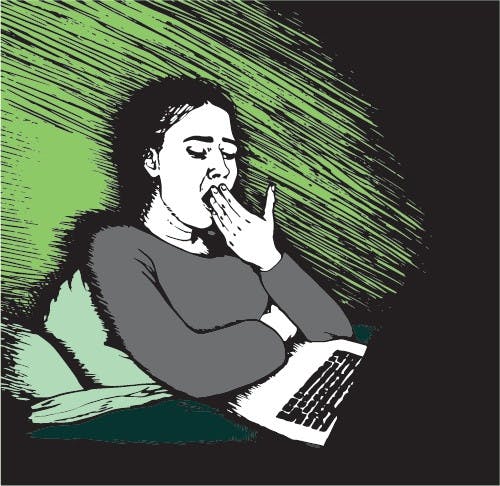With the pandemic taking a toll on the country, people are resorting to more virtual ways of entertainment
By Chris O’Neill and McKenna Andersen

It’s scary out there. There are talks of food shortages, people wearing masks just to leave the house and constant reminders of the worldwide death toll due to the COVID-19 pandemic. Yet viewers can’t help but binge-watch post-apocalyptic movies, and my Netflix “trending” feed is proof.
“Oh, yeah, you see on Netflix, people watch them,” said Grace Jordan, a Blaine resident and retail clerk.
Jordan said she thinks people enjoy watching movies with dark themes because they bring up questions people would normally be afraid to ask.
“I like ‘The Bad Batch’ because it shows the dark side of what people would do in a post-apocalyptic situation,” Jordan said. “Things like cannibalism, cults, stuff like that.”
Ashton Buell, a Western graduate, thinks COVID-19 caused people to relate to the characters in post-apocalyptic movies in ways that may have never occurred to them before. He offered the example of “I Am Legend.”
The film, adapted from a 1954 book by Richard Matheson, leaves Will Smith’s character, Robert Neville, the sole survivor of a pandemic. The virus in the movie is originally created in a lab to cure cancer, but instead mutates its human hosts into violent monsters.
“I think it just does a good job of what it would be like if you were truly alone,” Buell said. “[It’s] pretty eerie when you think about wanting to quarantine from a ... pandemic.”
Buell cited “World War Z” and “Train to Busan” as other all-time favorites.
“When you put characters in extreme situations like that, it allows you to just really delve into the complexity of the characters,” Buell said. “It kind of makes you think about the carnal level of a person’s survival instincts.”
With the world going through what seems to be our own apocalyptic reality, Western film scholar Dawn Dietrich mentions her favorite film and some reasoning as to why films can impact people in certain ways.
Her personal favorite post-apocalyptic movie is “Melancholia,” a Danish film from 2011. “The story features a character played by Kirsten Dunst, who struggles with mental illness (depression) in a sci-fi scenario where a planet is on a collision course with Earth,” Dietrich said in an email. “Not surprisingly, the individual who has coped with the apocalyptic nature of depression and the sense of lived doom it initiates is the most capable and ready to step forward, to lead others in the face of the catastrophe.”
With COVID-19 representing our new way of living, there is still a lot of unknown and people are scared. Pickford film curator Steve Meyers believes sci-fi movies can help with that sense of fear.
“Sci-fi movies help us get into a mindset of being able to get out of a particular situation,” Meyers said. “I think people are just trying to wrap their heads around a really bad, unforeseen situation. And these movies are a really good representation of that.”
Dietrich said movies are made for a sense of entertainment, but they are also made for a sense of connection, regardless of the genre.
“They impact us physically, mentally, emotionally, and in other very human ways,” Dietrich said. “When we ‘see’ a film we don’t ‘leave it’ when the film is over, but we carry the memory and experience of engaging with the film with us, in us.”





